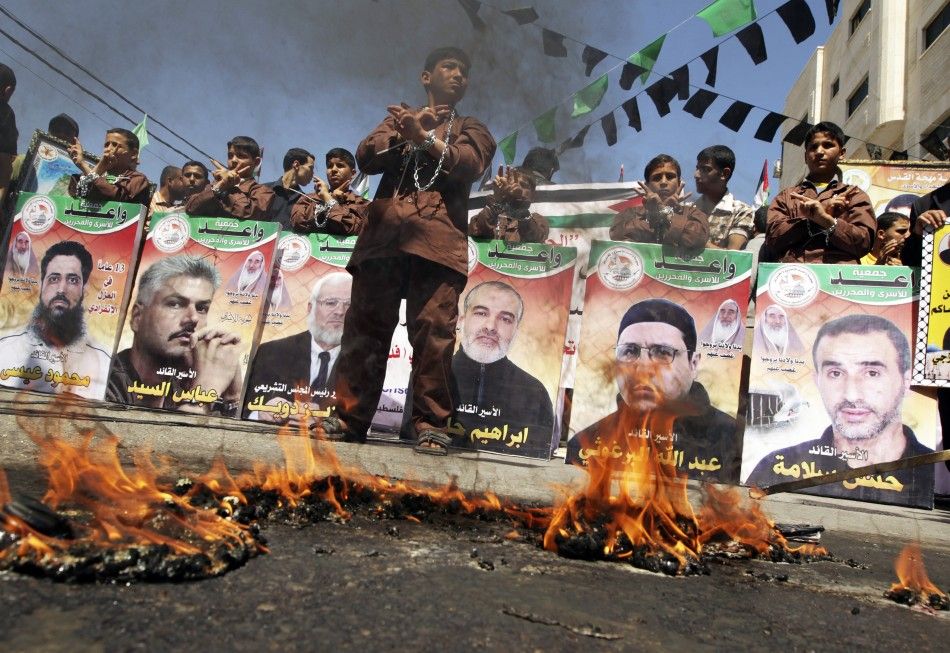1,200 Palestinians Declare Hunger Strike; Protests Erupt In Gaza In Solidarity With Prisoners [PHOTOS]
More than a thousand Palestinian prisoners held by Israel launched a hunger strike Tuesday to oppose prison conditions and demand an end to imprisonment without trials.
Some 2,300 Palestinian prisoners held in Israeli jails will not eat their daily meal in support of Palestinian Prisoners Day -- a day that Palestinians mark their annual solidarity with inmates. Another 1,200 will launch open ended hunger strikes, said Israeli prison spokeswoman Sivan Weizman to the Associated Press.
At IPS [Israel Prisons Service], we have coped with hunger strikes in the past and we are prepared to do so again now, said Weizman to the AFP.
Ten Palestinian prisoners are already on hunger strike. Two were hospitalized for refusing food for more than 40 days. Khadnan Adnan, who refused to eat for 66 days, was set free Tuesday par agreement with Israel.
Adnan began his hunger strike to protest Israel's policy of administrative detention which allows Palestinians to be sentenced by military courts without being charged. Some prisoners languish in Israeli prisons for months or years.
Israel agreed to set Adnan free if he ended the hunger strike. His near 10-week hunger strike made him a national hero.
He began the first step for the rest of the prisoners, said his wife Randa to the Associated Press, referring to the hunger strike taking place Tuesday.
Palestinians may be imprisoned in Israel for a range of crimes, from throwing stones at officers to planning militant attacks. Administrative detention is an emotional issue in Palestinian society; prisoners are often viewed as heroes, even if their actions have cost civilians their lives.
Hundreds of people gathered in Palestinian areas to protest, waving pictures of imprisoned loved ones and flags of different political factions.
Near Jerusalem, Palestinian youths threw rocks at Israeli guards near a military prison. The guards launched tear gas and pellets at the youths. No injuries were reported, according to the Associated Press.
Around 4,700 Palestinians are being held in Israeli jails, with 300 in administrative detention. The prisoners on hunger strike want to put an end to these detentions and solitary confinement. They also want Gaza families to be allowed to visit those being held in Israeli prisons and permit prisoners to engage in academic studies and read newspapers.
The situation inside Israeli prisons has become very dangerous and serious, Palestinian Minister of Prisoners Affairs Issa Qaraqi told The Jerusalem Post. The Israeli government is using the prisoners as a tool to retaliate against the Palestinian people and their leadership.
Protests are scheduled throughout the West Bank and Gaza Strip. The mass prisoner hunger strike is the largest on record.




© Copyright IBTimes 2024. All rights reserved.











